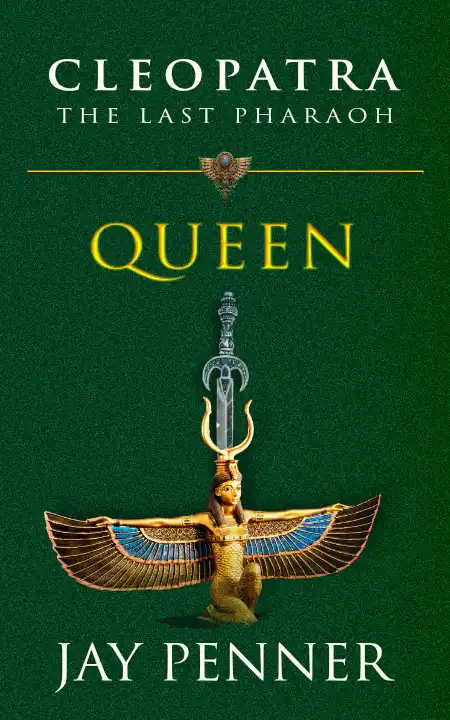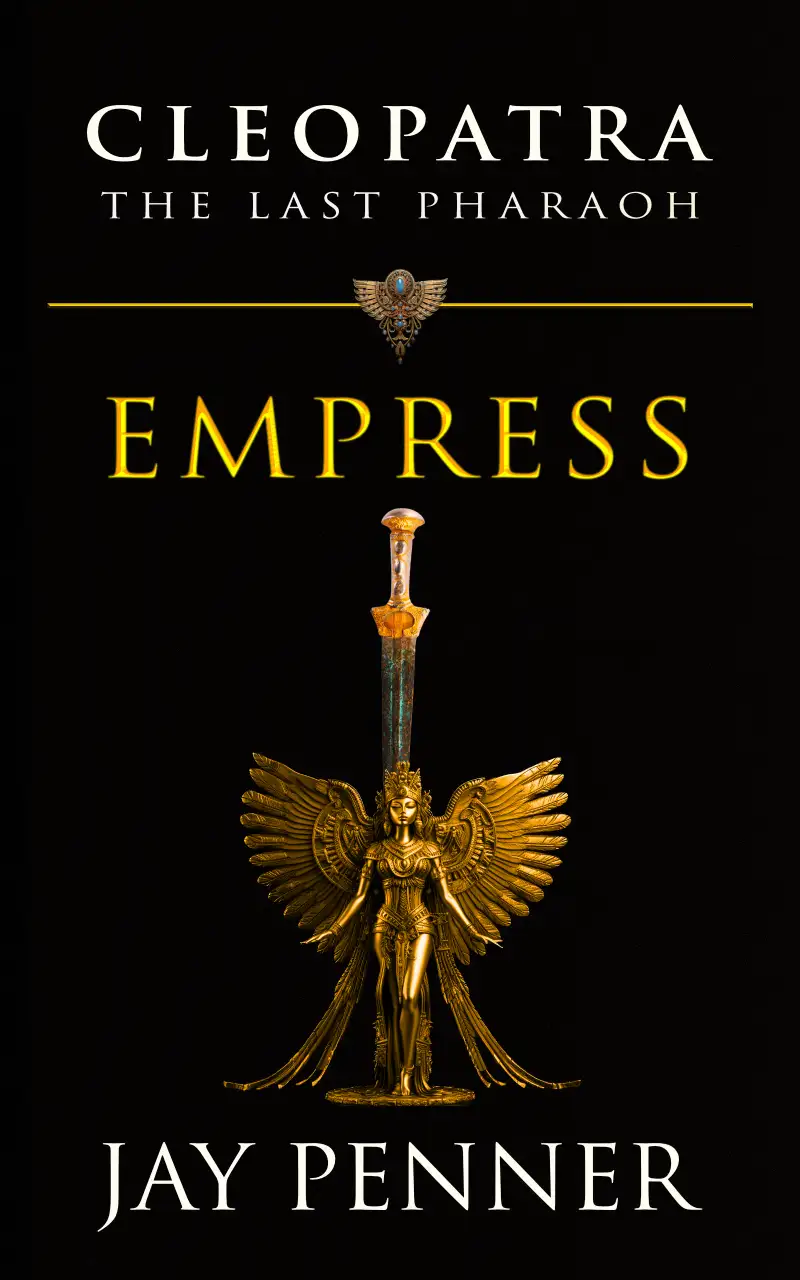Was Cleopatra Black?
You may have heard of the recent controversy (as of May 2023) of Jada Pinkett Smith’s Netflix Docuseries on Cleopatra that depicts her as a black queen. As someone who wrote an entire series on Cleopatra, and did so after researching a considerable amount of ancient historical sources, I wanted to look at this question.
I’m a proponent of representation. Only those that have spent time in any type of minority status knows what it feels like, and I have had my fair share, having lived in different parts of the world. Having said that, I believe that historical depictions have to be grounded in known facts or make a reasonable attempt at logical inferences.
So, was Cleopatra back? Or how likely was it she was black?
But for now, I prefer not to state an opinion. Instead, let us go down the path of “reasonable evidence” based on what we know from ancient history.
Cleopatra was a Ptolemy
Alexander was crowned Pharaoh of Egypt in 332 B.C. and founded Alexandria, which is still a thriving modern city in Egypt. Ptolemy was one of his generals (and a companion from younger days in Macedonia/Greece) who then accompanied the king all the way to India and back. After Alexander’s death, his generals divided the vast empire amongst themselves, and Ptolemy received Egypt, where he ruled from ~321 B.C and founded the Ptolemaic dynasty. Ptolemy was a Macedonian, and we have examples of Ptolemy’s appearance through a bust and coins.
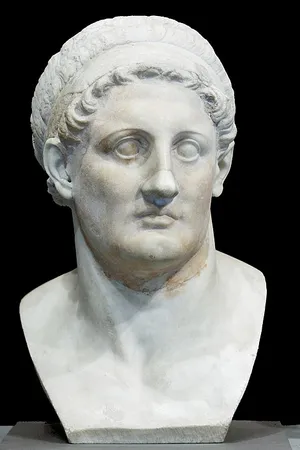
The famous Cleopatra (Cleopatra VII Philopator) was a descendent of Ptolemy and belonged to a lineage of Macedonians.
Ptolemy had several wives, but Berenice, the one who gave him a successor, was a Macedonian woman who was a lady-in-waiting for Ptolemy’s first wife, Eurydice, also Greek. Ptolemy II came from this union. Ptolemy carried forward Alexander’s attitude towards conquered lands. He inculcated local customs, worshipped Egyptian gods (and the Ptolemies began their own cult that intersected Greek and Egyptian gods—read about Serapis), and over time, his dynasty became strongly interwoven with Egyptian heritage. Their court was Greek, but most of the country continued its former ways. One aspect of Egyptian royalty that the Ptolemies imbibed was intermarriage. The man wed his cousin or sister, and the lineage continued that way. And in this construct, almost all members of the Royal family were of Greek/Macedonian heritage, except in some circumstances where they may have had Seleucid influence. Now, the Seleucids were an empire in Western Asia, including modern Iran, and founded by Seleucus Nicator, another Macedonian general of Alexander.
Cleopatra’s father, Ptolemy XII Neos Dionysos Philopator, descended from this structure. For all of Cleopatra’s fame, we know nothing of her mother. It is possible, and highly likely, that her mother was her father’s sister or cousin (Cleopatra Tryphaena). There is only the flimsiest thread that he may have married a foreign woman, in which case Cleopatra could be of mixed heritage. But where does this speculation come from? Only from the basis that her father may have married a Persian woman (or someone from the Seleucid dynasty—but then Seleucids themselves were Macedonian too) to strengthen his foreign alliances. But then Persians are neither black nor of Greek heritage. As to the speculation that her mother was black—it is based on only the fact that Ptolemy XII may have had other mistresses and wives of different ethnic and racial origins. But there is no historical source that speculates in that direction (it’s a modern inference).
Cleopatra’s father, Ptolemy XII, also called Auletes
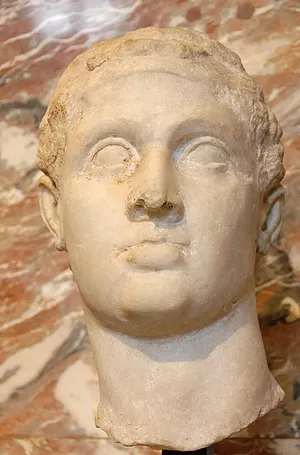
What do the ancient writers say of her looks?
Let’s leave aside interpretations and go straight to the best known, most credible sources that have come down to us from antiquity. These sources either knew Cleopatra as they lived during her time, or wrote about her in the decades (or centuries) after, based on first or second-hand sources, or through literature now lost to time. Sometimes, it is important to pay attention to what is not being said, along with what is being said. If Cleopatra was black, that would be extraordinarily unusual in a Ptolemaic kingdom that was almost entirely Greek in heritage. And thus would that fact not get a mention somewhere? It’s important to note that they did not perceive race as we do today. Race was a state of being for most parts, and any superiority of a class of people was based on nobility, whether they were conquered or conquerors, and whether their ways were different and so on.
Strabo—Geographer and Biographer, possibly was in Alexandria during Cleopatra’s last months. He says absolutely nothing of her appearance.
Julius Caesar—only mentions her name once in his Alexandrian wars, but omits her appearance (though he had an affair with her and she had his child). Hirtius, who wrote the second part of the Alexandrian war in Caesar’s name, does not describe her appearance either.
Cicero - Roman statesman - only complains of her arrogance, though he never mentions her by name and says nothing of her appearance.
Plutarch - the most famous biographer of Cleopatra, vilifies her plenty, but does not describe her. He speaks of her charm and hold on the men.
Cassius Dio - the next most popular source. Calls her beautiful and says: “For she was a woman of surpassing beauty, and at that time, when she was in the prime of her youth, she was most striking; she also possessed a most charming voice and a knowledge of how to make herself agreeable to everyone. Being brilliant to look upon and to listen to, with the power to subjugate everyone, even a love-sated man already past his prime, she thought that it would be in keeping with her rôle to meet Caesar, and she reposed in her beauty all her claims to the throne.”
Virgil - a poet who lived during the time of Cleopatra and Augustus (the man who vanquished Antony and Cleopatra and became the first emperor of Rome), wrote the famous Aeneid in which the character, Queen Dido, is said to have been closely modeled after Cleopatra. In describing Dido’s beauty, the poet says: “She glowed with a rosy color, as lovely / as when the moon shines clear in a cloudless sky.” and also: “Her neck and arms were white as snow, and her breast / was like a rose in full bloom”
Other accounts become increasingly speculative and far removed from primary sources.
Are there visual depictions of Cleopatra?
Yes. We have items that purport to show Cleopatra. And like always in history, there is some uncertainty in a few, but there is a high likelihood that they depict Cleopatra. Note that no definitive statue of her has been found in Egypt.
Source for images: Wikimedia Commons.
The Berlin Museum Cleopatra Bust - possibly made during her visit to Rome to see Caesar.
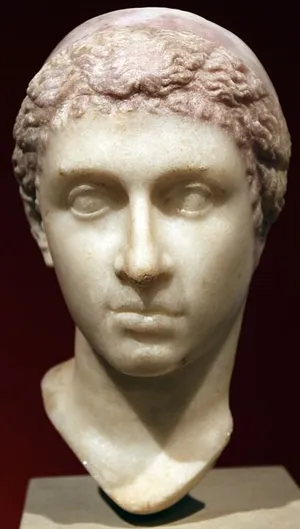
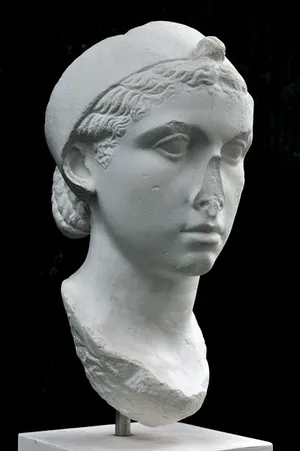
The Vatican archives bust - nose missing - possibly made during her visit to Rome.
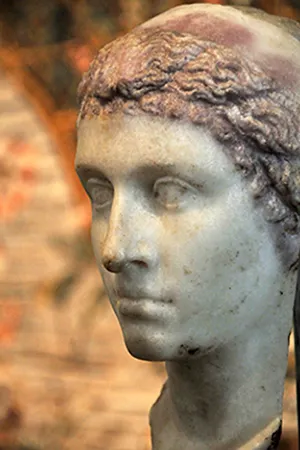
The Pompeii painting - likely showing Cleopatra and her son.
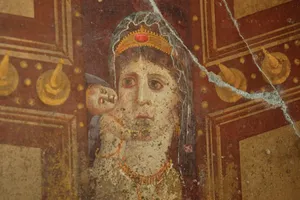
Another painting - likely showing Cleopatra. Evident by the diadem, a symbol of Hellenic royalty.
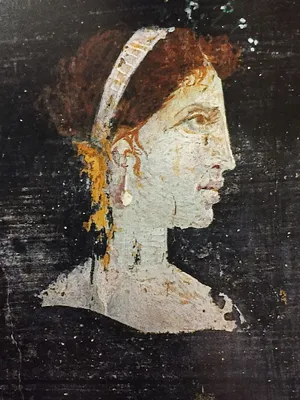
Coins - showing Cleopatra during her rule
Showing Cleopatra around 51 B.C. (around when she was 18), with a youthful profile.
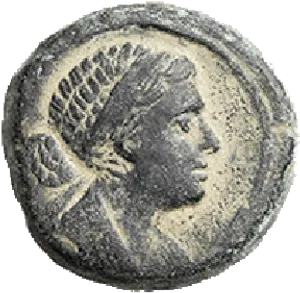
Showing Cleopatra in her mid-thirties and later.
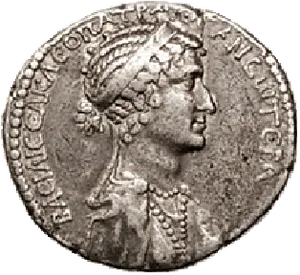
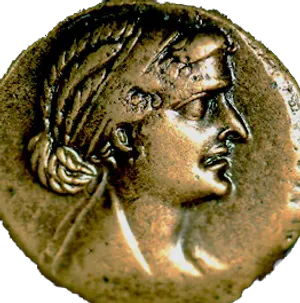
Dendera temple figure - showing Cleopatra and her son.
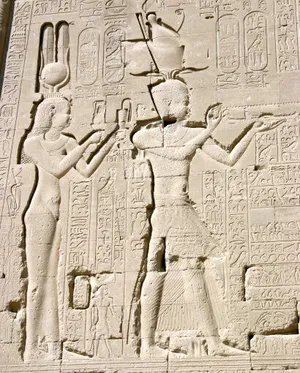
Each of these depictions provides a clue to her heritage.
Summary
My belief is that documentaries should index to the side of reasonable interpolations to plug missing details, otherwise they lose credibility and can do harm to the very cause they espouse. I hope the above content showed what we have from ancient history rather than speculating what she might have been, and let you draw your conclusions. If stronger historical evidence emerged that she was indeed black (or any other!) that would be wonderful as well, and should be admitted as any other data point.
4.5/5 from 4000+ ratings (overall). Grab a thriller from Jay.
51 B.C., Alexandria, Egypt
Some wells have poisoned waters.
With her father sick and her sister dead by his hands, sixteen-year-old Cleopatra is poised to assume the heavy mantle of power and exercise the divine authority vested in her by the gods of Egypt.
But the gilded arches and marble columns hide a grim reality and the gathering of storm clouds. A surly Rome is banging on her doors for debt repayments, the kingdom is on the verge of a civil war, and the dying king’s powerful advisors seek to discard her like a rag and control the kingdom through her brother.
Now, the young regent must confront her adversaries and walk the tightrope over an abyss of treachery and conflict, because one wrong move means ending three thousand years of Pharaonic rule and turning up as a corpse in the Alexandrian marshes.
47 B.C., Alexandria, Egypt
Rest is not for rulers.
Finally crowned as the undisputed Queen of Egypt with the help of Gaius Julius Caesar, twenty-two-year-old Cleopatra hopes to recover from the harrowing experiences of the last few years and the just concluded bloody Alexandrian war.
But rest is not for rulers.
A diabolical conspiracy, orchestrated by shadowy figures in her government, looks to dethrone her by bringing her presumed dead brother to life. A colorful Idumean Jew named Herod clings on to the land she wants. And a powerful Roman named Marcus Antonius has summoned her to answer charges regarding her allegiance.
Now, the young mother is about to discover that ascending to the throne is only a step into the dark worlds of imperial politics, personal desires, and unrelenting enemies.
4.7/5 on Goodreads and Amazon
31 B.C., Actium, Greece
War is here.
Caesar Octavianus has declared war on Antony and Cleopatra.
The gilded arches and silk cushions of the Alexandrian palaces are a world away from Actium, where mosquito-infested, disease-ridden camps are the way of life.
Resented by Roman generals, abandoned by allies, and facing hostile forces, Cleopatra must now do what she can to preserve her life, her kingdom, and the future of her children.
The saga of Cleopatra concludes in this exciting final book of the trilogy.

Jay Penner’s highly-rated books regularly feature Amazon’s category bestseller lists. Try his Spartacus, Cleopatra, Whispers of Atlantis or Dark Shadows books. Reach out to him or subscribe to his popular newsletter.


